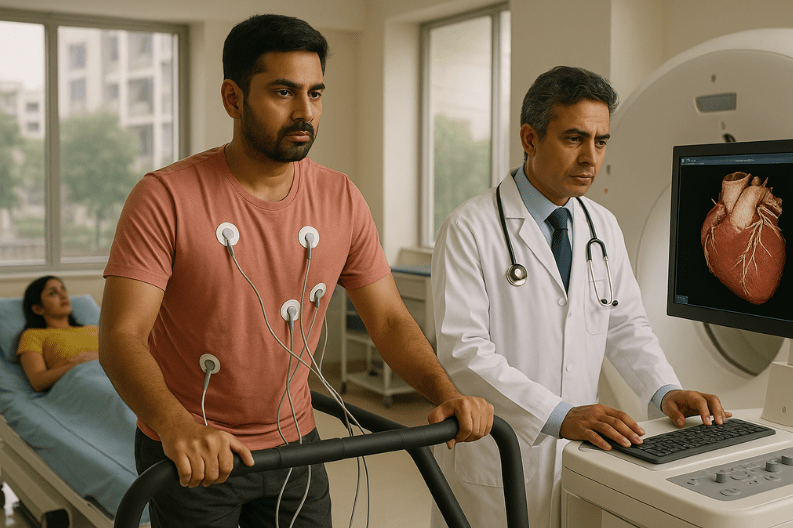A new study shows a significant increase in heart health screenings in Delhi-NCR, highlighting a major shift toward preventive care. More people are now getting tests like CT Coronary Angiography and Treadmill Tests (TMT) to detect heart problems early. This change shows how people are becoming more health-aware and want to act before any serious symptoms appear.
Between January and August 2025, the study recorded a sharp rise in key heart tests. TMT numbers grew by 34.6%, while CT Coronary Angiography increased by 30.6%. Echocardiography also went up by about 10%. This surge proves that people are more serious about monitoring their heart health, especially those between 25 and 45 years old.
Dr. Anil Kumar, a leading cardiologist, explained that more young and middle-aged adults are choosing regular heart checks. They understand that early detection helps prevent serious conditions later. Preventive screenings, once ignored by younger groups, are now common and widely accepted.
Mahajan Imaging & Labs, which led the study, highlighted that CT Coronary Angiography is a safe, non-surgical test that uses lower radiation than many traditional methods. Because of these benefits, it has become one of the most preferred options for early heart disease detection.
The trend is not limited to Delhi-NCR. In Punjab, for instance, cardiovascular disease is responsible for 24% of deaths, according to the Punjab Health Systems Corporation. As a result, towns like Mohali are improving their healthcare infrastructure, offering advanced tests and encouraging people to take charge of their heart health.
Experts also emphasize lifestyle choices as a key part of prevention. Eating a balanced diet, exercising regularly, avoiding smoking, and managing stress can significantly reduce the risk of heart disease. Moreover, understanding family medical history can guide people to take timely precautions.
Clinics and hospitals are now making more educational resources available. They organize awareness campaigns, distribute simple health guides, and provide counseling to encourage regular screenings. This information empowers people to discuss heart health openly with doctors and make informed decisions.
As public interest in prevention grows, healthcare providers are adapting their services. More doctors are recommending routine screenings and follow-up care to track heart health over time. This proactive approach not only improves individual outcomes but also reduces the overall burden on the healthcare system.
In summary, the strong increase in heart health screenings shows a promising shift in how people approach their well-being. With greater awareness, better access to advanced tests, and a focus on prevention, cities like Delhi-NCR and Punjab are moving toward a healthier future and significantly lowering the risk of heart disease.



